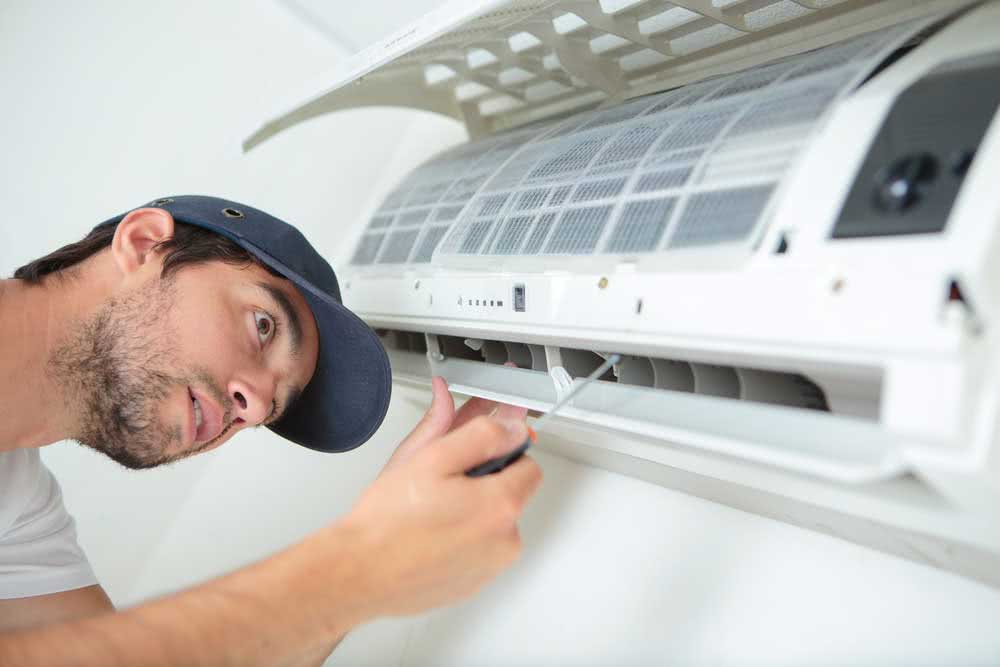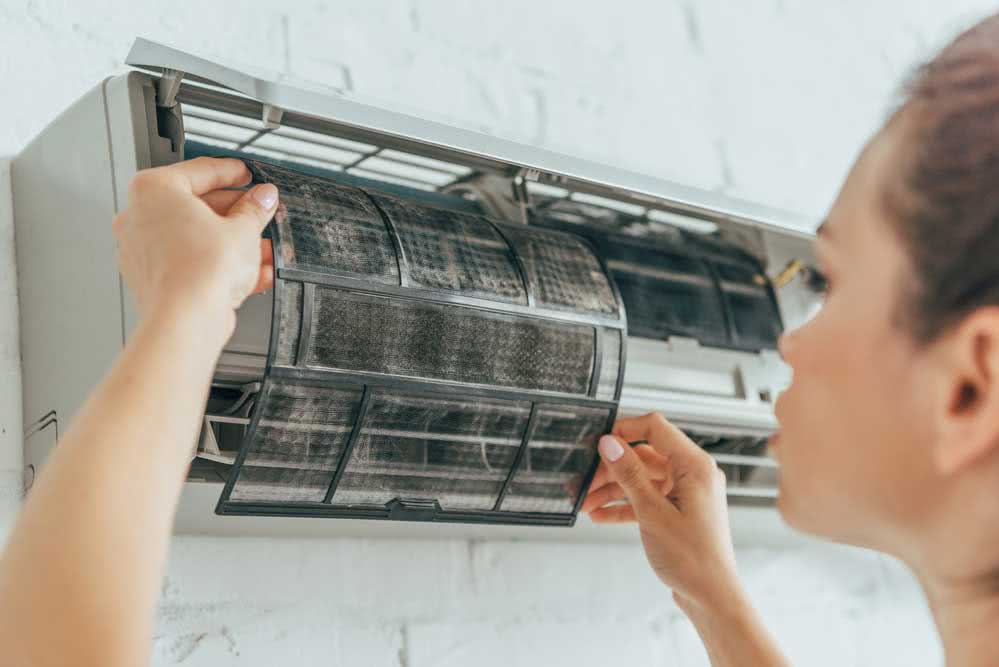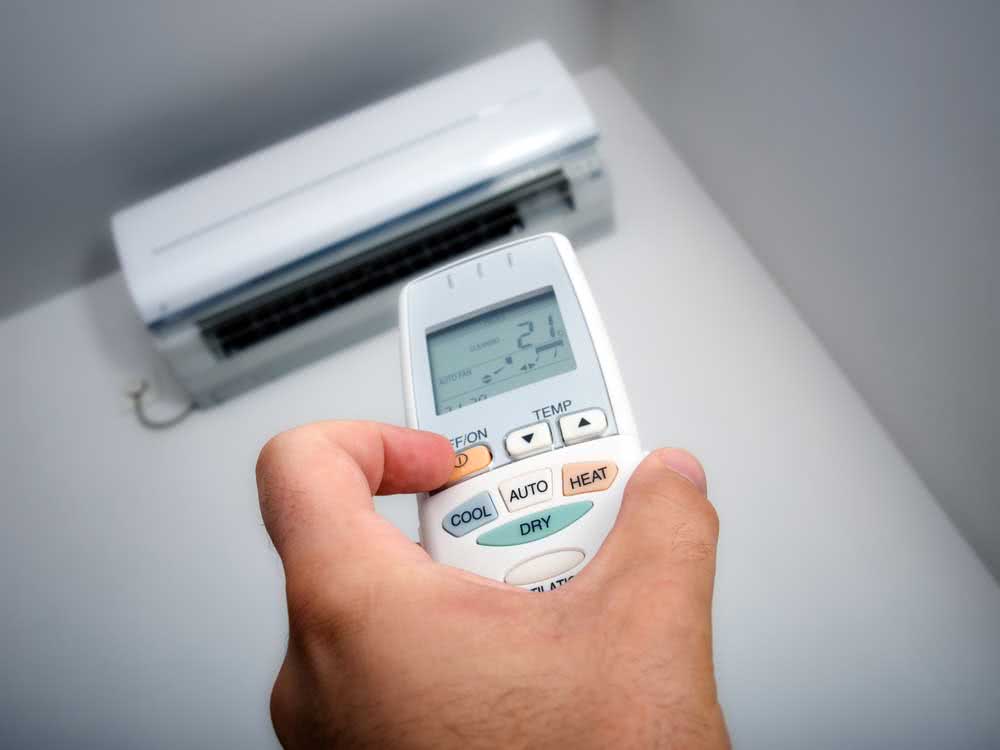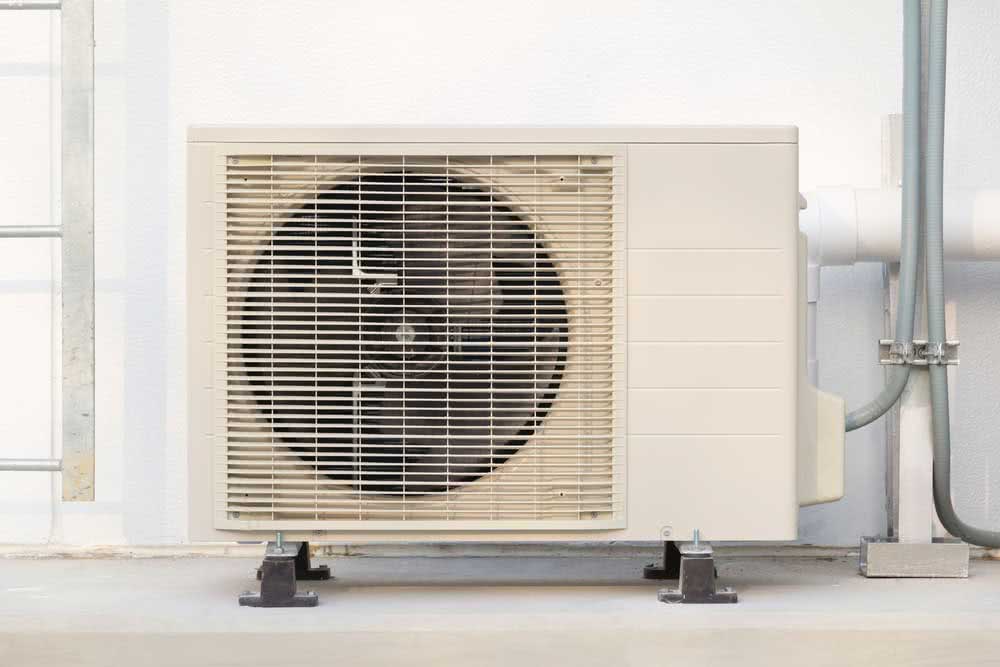There is a heat outside, meanwhile, indoors … the feeling is, unfortunately, the same! That’s when you realize that the air conditioner doesn’t freeze or cool anymore.
What could be happening? There are several reasons behind this problem, from the simplest to the most complex.
Luckily, most of them can be solved by yourself, without the need for a specialized technician.
Check out the tips we’ve separated and see what you can do to solve this problem.
Air conditioning does not freeze: causes and what to do
1. Bad plug contact
It may sound silly, but believe me: one of the reasons that your air conditioning may not cool down is the outlet.
The solution, as you can imagine, is simple. Simply plug and unplug the device into the outlet, checking that the fit is correct and that there are no faults in the wiring or plug.
If the issue is not resolved, try the other tips below.
2. Power x environment size
Another common problem that tends to affect the operation of air conditioning is the power of the device in relation to the environment.
In general, the greater the power of the air conditioner, the greater the cooling capacity, especially in larger environments.
There is a table, known as a BTU, that can help you find out if the air conditioner’s power matches the room size.
For example, an air conditioner with up to 7,500 BTU of power can quietly cool an environment of up to 10 m². An environment with 20m², however, needs an air conditioner with at least 12,000 BTU of power.
Therefore, it is good to take a look at your device manual, check the power and analyze if it is adequate for the size of your space.
3. Outdoor temperature
The temperature outside also interferes with the cooling capacity of your air conditioner, you know?
Some models of air conditioners can only cool an environment under external temperatures below 33ºC.
Therefore, if you live in any region of the country where temperatures exceed this range, your device is probably not able to do the cooling.
A tip, in this case, is to use in conjunction with the air conditioner a ceiling, floor or table fan. That way you can keep the air cooler and, consequently, the device works better.
But if your region does not reach these temperatures, then the problem could be one of the following.
4. Open doors and windows
Open doors and windows are natural enemies of air conditioning. This is because the air cooled by the device simply “escapes” through these openings and, as if that weren’t enough, the hot air from outside continues to enter. That is, the problem is not the air conditioning.
Therefore, it is worth checking that all doors and windows are closed and all openings and crevices are properly blocked. This way, you prevent this exchange of air between environments.
5. Old device

How old is your air conditioner? It is recommended that these devices are replaced every ten years, on average.
Over time, the air conditioner can start to have configuration problems, present inefficiencies in functions, such as loss of cooling capacity, and consume much more energy than it should.
If that’s the case for you, perhaps the best option is to buy a new air conditioner.
6. Maintenance failures
Poor maintenance can also result in problems with the appliance’s cooling. Therefore, the recommendation is to always look for a specialized professional to guarantee a quality service.
It could be that a small damage to one of the parts is the reason behind the inefficiency of the air conditioner.
If you suspect this, the tip is to seek a professional specialized in this type of device and carry out the necessary repairs.
7. Dirty or clogged filter

If none of the above have solved your air conditioning problem, then maybe you should try this one.
A dirty or clogged filter is often one of the biggest causes of air conditioning inefficiency.
Over time, the evaporator unit (the one that faces the interior of the house) tends to accumulate dust. If cleaning maintenance does not take place, the filter becomes so dirty that it ends up preventing the appliance from cooling the environment as it should.
The solution, as you might already imagine, is to remove the filter from the inside of the device and clean it. This procedure may vary depending on the brand and model of your device. When in doubt, it is always interesting to consult the manufacturer’s guidance manual.
But there is a basic formula for cleaning the air conditioning filter that consists of only two items: water and mild soap.
For window appliances, just remove the filter and wash. In the case of Split air conditioning models, the tip is to remove the filter, vacuum up excess dust and, finally, wash the filter.
In both cases, wait for the filter to dry completely before putting it back in the appliance.
However, if your appliance has a HEPA type filter with charcoal, then clean it by just vacuuming the dust. This type of filter cannot be washed.
Even with periodic cleaning, the recommendation is to change the air filter every 1.5 years, more or less.
Remembering that the cleaning frequency indicated by the manufacturers is once a month. If the air conditioner is used very regularly, then the ideal is to clean every fortnight.
8. Adjusting the settings

Have you ever stopped to think that your air conditioner’s cooling problem might just be the setup mode?
Many devices have different settings for the hottest periods of the year, such as the turbo function and ventilation. This setting allows the device to cool the room more efficiently on summer days.
So it’s worth taking a look at the manufacturer’s instruction manual and checking that the device is set up correctly for the station.
9. Gas leak
Have you ever noticed that your air conditioner is dripping and giving off an unpleasant odor?
This is a clear symptom of a gas leak from the device. This gas is responsible for absorbing hot air and, consequently, releasing cooled air.
But if for some reason the gas is leaking, this function is seriously compromised and you will notice, in addition to the characteristics mentioned above, an increase in the electricity bill.
Not to mention that the device is only ventilating the room instead of doing the freezing or cooling function.
In this case, the solution is to call an authorized technician (prefer those accredited by the manufacturer so as not to lose your warranty right) to repair the problem.
10. Condenser Obstruction

A dirty or blocked condenser can also be the cause of an air conditioner that does not freeze.
The condenser, located on the back of the device, is responsible for flushing out the hot air. However, if it is dirty or blocked by dirt or some object, the hot air instead of leaving ends up returning inside your house.
And then you get that feeling that the air conditioner isn’t freezing.
To solve this problem, check the condenser for dirt that has accumulated. Even branches and leaves could be blocking the condenser. Do this check and see if the air conditioner cools down again.
11. Ice in the evaporator
Did you know that your air conditioner can freeze? That’s right! This type of situation usually happens when the device runs non-stop for hours and hours at a time.
To find out if this is happening with your device, just place your hand in the region close to where the filter is. If you notice that the place is too cold, a layer of ice has possibly formed inside the air conditioner.
But do not worry. It’s simple to solve this. First change the air conditioner function to ventilation only, this helps to defrost the internal components. Then check the filter and see if it is dirty, as excessive dust can also cause this to freeze.
Clean if necessary. Keep the air conditioner on ventilation function until the evaporator completely defrosts.
And a tip: never turn on the air conditioner if you suspect it is frozen. This can cause serious damage to the device.
When to call the technician?
If none of the above works, then there is no other way but to call a technician to further analyze what is happening.
Once again, it is worth emphasizing the importance of having the help of a specialized technician, preferably accredited by the manufacturer.
Don’t venture out with “do it all” professionals. You run a serious risk of even greater losses.



